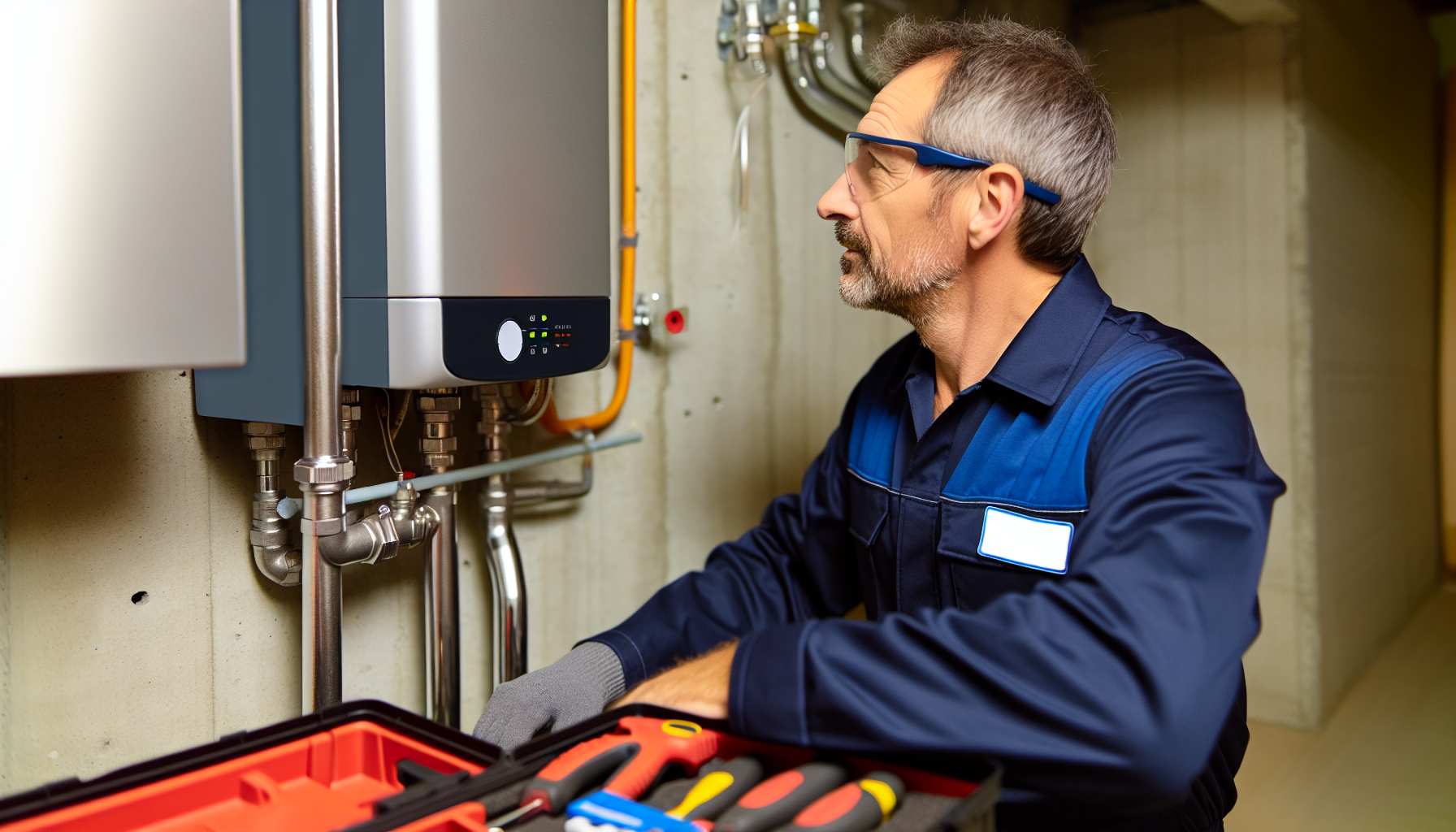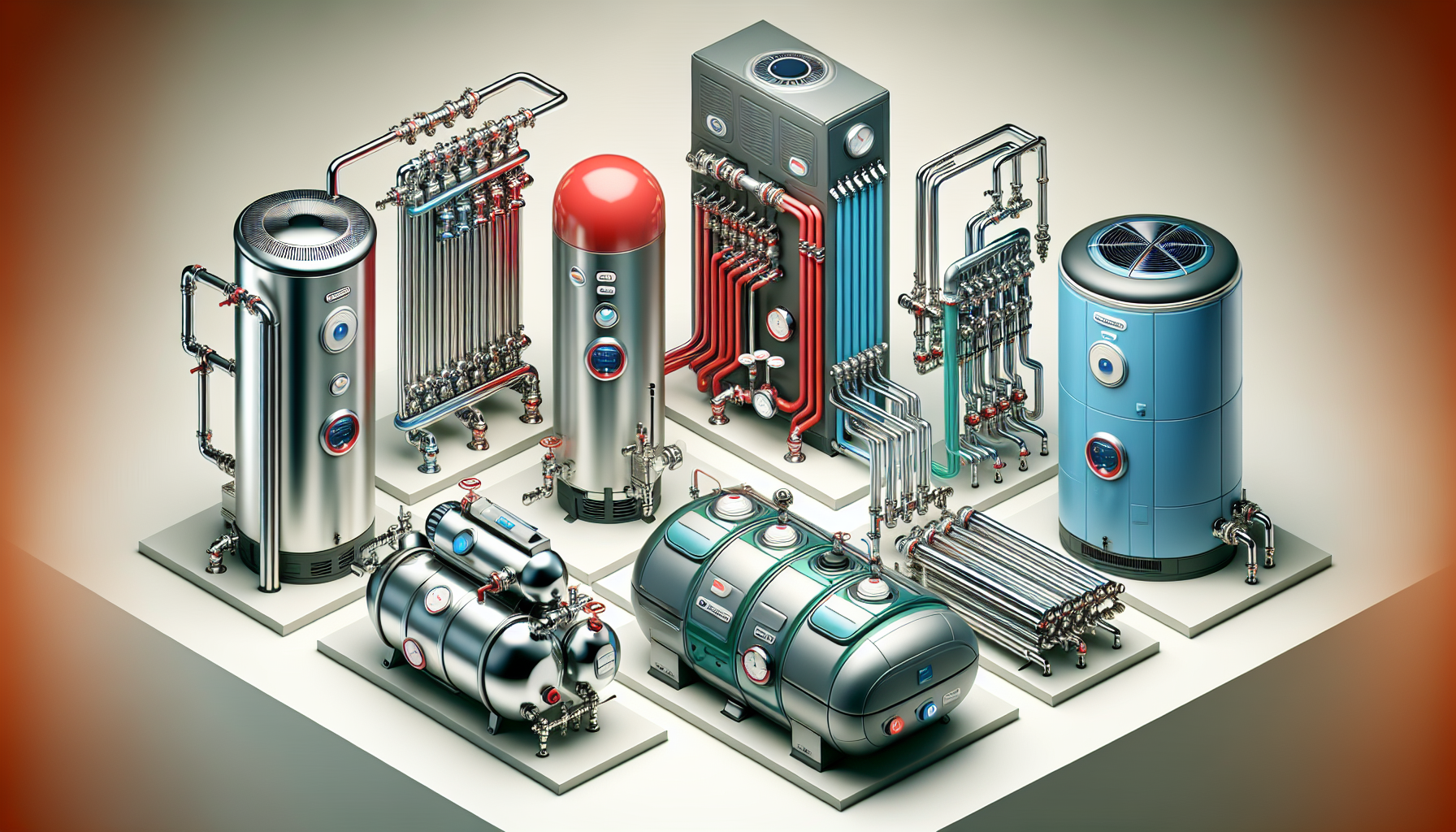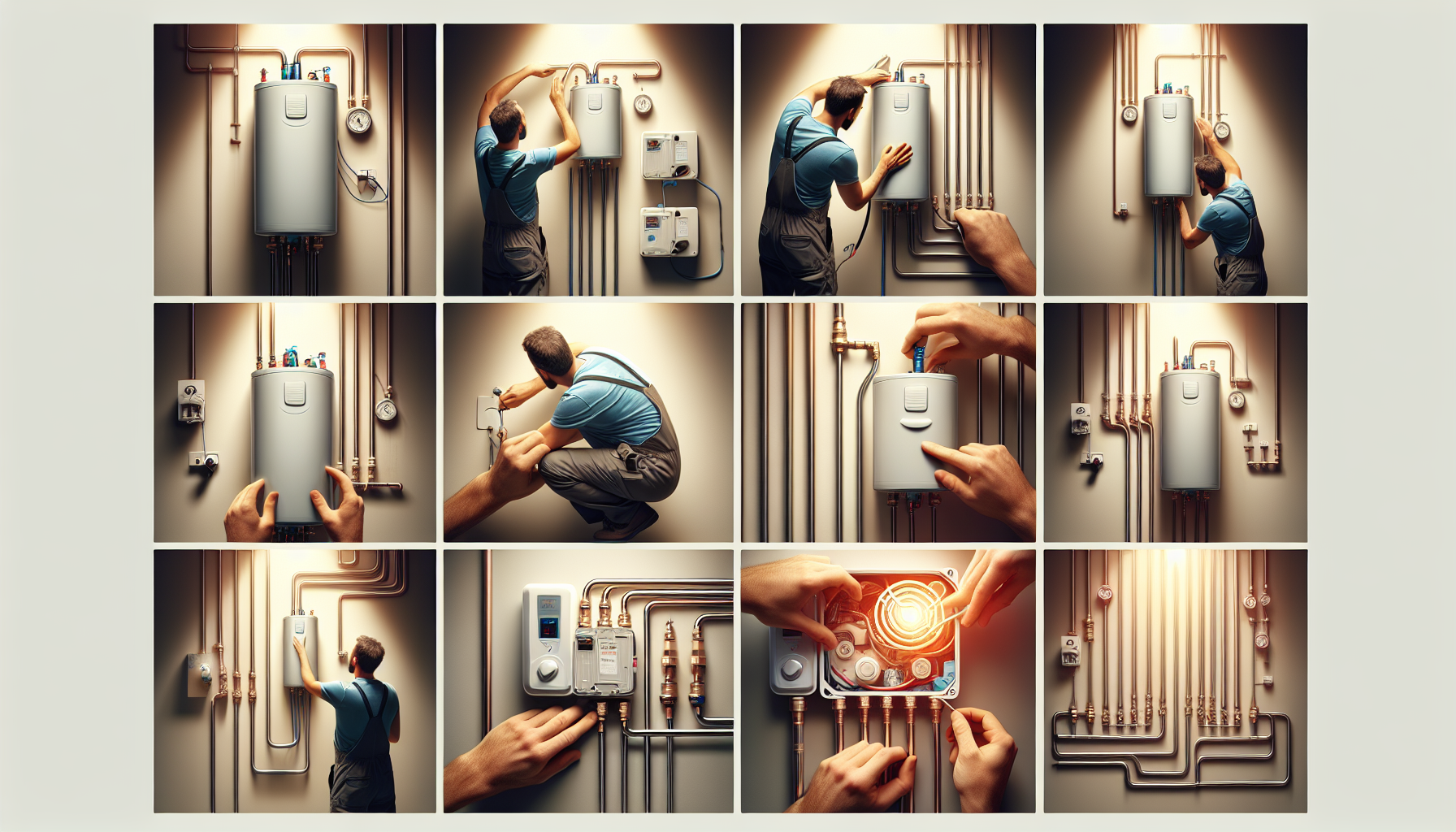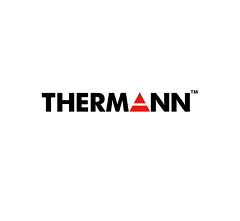Find the Best Hot Water Installer: Your Guide to Professional, Affordable Installation
When your hot water system fails or you’re ready to upgrade, selecting the right hot water installer is crucial for ensuring safe, efficient service that fits within your budget. This guide cuts through the noise, providing you with essential information on choosing qualified professionals, understanding different system types, comprehending the installation process, and evaluating costs—all to streamline your experience with hot water system installation.
Key Takeaways
-
It is crucial to hire a licensed plumber for hot water system installation to ensure safety and optimal performance. Key selection criteria include the installer’s experience, licensing, reputation, pricing transparency, and responsiveness.
-
There are several types of hot water systems, including electric, gas, solar, and heat pump systems, each with distinct advantages. The choice should be based on individual needs, preferences, and budget considerations.
-
The cost of installing a hot water system varies depending on the type, installation complexity, and additional components. To reduce expenses, homeowners can compare quotes, choose energy-efficient systems, and utilize available government rebates and incentives.
Choosing the Right Hot Water Installer
Installing a hot water system yourself may not be the ideal approach. In fact, improper hot water heater installation can lead to serious safety hazards such as water leaks, gas leaks, fines or electrical shorts. Hence, hiring a licensed plumber to handle the job is a recommended option. Their specific skills can ensure safety and optimal performance of your system.
But what criteria should you consider when selecting an installer? Consider their experience, licensing, and reputation. Look for transparent pricing and same-day service. After all, nobody wants to be left in the cold waiting for their hot water system to be installed!
Experience and Expertise
In the realm of hot water system installation, much like any other profession, the installer’s experience and expertise carry significant weight. A competent installer should have:
-
At least two years of combined industry experience
-
The ability to identify installation requirements and knowledge of environmental requirements for water quality management
-
Training in teamwork, installation and commissioning of water heaters, testing and maintenance of backflow prevention devices, and installation of solar and heat pump water systems
These skills ensure optimal system functionality and help avoid costly mistakes.
Don’t let your hot water system be a learning experience for a novice installer!
Licensing and Certification
Though experience and expertise are key, the installer’s licensing and certification hold equal importance. In all cases, hot water system installers require specific licenses, but for certain products, the installer must be accredited with them. So, how do you verify an installer’s licensing and certification? You can use the search facility provided by the licensing authority with the technician’s license number or their name. You can also check if they are listed in the directory of accredited installers from industry associations or organizations.
A licensed plumber should also have a Certificate III in Plumbing and provide a compliance certificate.
Reviews and Reputation
Finally, remember to browse online reviews and seek recommendations. This can offer valuable insights into the dependability and customer satisfaction levels of different installation companies. You can visit reputable review websites such as ProductReview.com.au, where consumers provide authentic feedback. Consider the overall rating, number of reviews, and specific customer comments for each hot water system installer.
You might also find platforms that specialize in reviewing hot water system installers such as JR Gas & Water. All this research will help you make an informed decision and find the right installer for your needs.
Types of Hot Water Systems
Having discussed how to select an appropriate installer, we will now explore the various types of hot water systems on the market. There are several options, each utilizing a different heating method including:
-
Electric systems
-
Gas systems
-
Solar systems
-
Heat pump systems
Each option has its own advantages and the choice largely depends on your specific needs, preferences, and budget.
Regardless of whether you prioritize cost-effectiveness, energy efficiency, environmental friendliness, or ease of installation, there is a new hot water system tailored to your needs, even if you’re replacing an existing hot water system.
Electric Hot Water Systems
Electric hot water systems, including hot water heaters, are a popular choice due to their cost-effectiveness and convenient installation. These systems utilize electricity to heat water for domestic purposes and come in both tank and tankless options. There are two main types of electric hot water systems: instantaneous and storage tank systems.
Several reputable brands such as:
-
Rheem
-
Dux
-
Vulcan
-
Aquamax
-
Rinnai
are known for supplying and installing electric hot water systems. So, if you’re looking for a straightforward, affordable solution for your hot water needs, an electric system might be the way to go.
Gas Hot Water Systems
If you’re after energy efficiency and rapid heating, a gas hot water system could be the right fit for you. These systems provide both storage and continuous flow options. With gas instantaneous hot water systems, you get hot water as needed with flow rates ranging from 10 litres/minute to 16 litres/minute. On the other hand, gas storage hot water systems heat and store water in an insulated cylinder.
There’s also the option of tankless water heaters, which provide hot water on demand without the requirement of a storage tank. With a natural gas system, you can enjoy hot water whenever you need it without worrying about running out.
Solar Hot Water Systems
For those who wish to minimize their carbon footprint and save on operational costs, solar hot water systems are an excellent choice. These systems utilize the sun’s energy to warm water and are significantly more energy efficient. Solar systems come in different types such as flat plate, split, and evacuated tube systems, each with its own pros and cons. And no worries about cloudy days or nighttime, as these systems usually come with a gas or electric booster to ensure a consistent hot water supply.
Heat Pump Hot Water Systems
Heat pump hot water systems are another energy-efficient option. These systems operate by:
-
Extracting heat from the surrounding air to heat the water
-
Demonstrating high efficiency, utilizing only 30% of the energy required by conventional electric systems
-
Producing up to three times the energy they consume.
Though they might be pricier upfront, their long lifespan and cost savings in the long run make them a great investment.
Installation Process for Different Hot Water Systems
With a solid grasp of the various hot water systems at your disposal, it’s time to delve into their respective installation procedures. While some steps are common across all systems, such as connecting to your home’s plumbing, the specific installation process varies depending on the type of system.
Here are some key installation steps for different types of hot water systems:
-
Gas system: Connect the system to a gas supply and ensure proper ventilation for the gas burner.
-
Electric system: Connect the system to your home’s electrical supply and ensure proper wiring and grounding.
-
Solar system: Install solar panels or collectors on your roof and connect them to the hot water system.
-
Heat pump system: Install the heat pump unit and connect it to your home’s electrical supply and plumbing.
It’s essential to understand these differences so you can set realistic expectations and plan accordingly.
Electric Hot Water System Installation
The installation process for an electric hot water system is fairly straightforward. It mainly involves connecting the system to your home’s electrical supply and plumbing. Electric systems are generally considered the easiest to install as they only require a connection to a standard electrical supply. During installation, safety measures such as fitting a tempering valve to minimize scalding risk should be taken and any leaking taps or appliances should be promptly addressed.
Basic tools like a voltage tester, tubing cutter, flexible hoses, pipe dope or plumber’s tape, a wrench, and screwdrivers are required for the installation.
Gas Hot Water System Installation
When it comes to a gas hot water system, the installation involves a little more complexity. A licensed gas fitter is required to connect the system to your home’s gas supply and plumbing. The complexity can vary based on the accessibility of an existing gas supply line.
As for the steps, they involve opening the cold water supply valve, filling the tank, checking for leaks, turning on the power or gas supply, and setting the desired temperature. The installation requires tools such as adjustable wrenches, drills, gloves, a hand truck, pipe cutter, pipe wrenches, safety glasses, screwdrivers, and joint compound for the pipes.
Solar Hot Water System Installation
The installation of a solar hot water system, on the other hand, involves additional steps like installing solar panels or collectors and connecting them to the storage tank. The system is then connected to your home’s plumbing.
One thing to note with solar systems is that they may require a backup heating source such as a gas or electric booster, which can add to the complexity and cost of the installation. Therefore, it’s essential to have the installation carried out by a licensed plumber and an electrician for any electrical work involved in the system setup.
Heat Pump Hot Water System Installation
Finally, when it comes to installing a heat pump hot water system, the procedure entails linking the unit to the household’s electrical supply and plumbing - a process akin to an electric system. However, one key difference is that a heat pump system also requires proper ventilation for the heat pump. The installation involves a series of steps, including removal of the existing heater, preparation of the installation area, arrangement of the plumbing connections, placement of the heat pump water heater, connection of the water pipes, and management of condensate drainage. A pipe wrench is an essential tool for the installation.
During the installation, potential challenges such as managing electrical complications, ensuring sufficient installation space for optimal operation, and addressing the possibility of water leaks may arise.
Cost Factors in Hot Water System Installation
While we’ve explored the various hot water systems and their corresponding installation procedures, we’ve yet to address the aspect of cost. The total cost of installing a hot water system can vary significantly depending on a number of factors. These include the type of system you choose, the complexity of the installation, and any additional components or setup required.
Let’s examine each of these contributing factors more closely.
System Type
The type of hot water system you choose can have a big impact on the overall cost of installation. For instance, electric hot water systems are generally more cost-effective to install than gas systems, whereas solar and heat pump systems may incur higher costs due to their enhanced efficiency and advanced technology.
Each type of system also has a typical range of costs:
-
Electric systems: $400.00 to $1,500.00
-
Gas storage systems: $800.00 to $1,500.00
-
Gas instant systems: $450 to $2,200.00
-
Solar systems: $3,000 to $7,575.
Labor Costs
Labor costs can also vary widely depending on the complexity of the installation and the expertise of the installer. More complex tasks, such as plumbing and intricate roof installations, may require additional labor and materials, thus increasing the overall costs. The level of expertise of the installer can also affect labor costs, as more experienced professionals may charge higher rates due to their specialized skills.
Your geographical location and local market rates can also influence labor costs, with urban areas often having higher rates compared to rural areas.
Additional Components and Setup
Lastly, the cost of additional components and setup can add to the overall cost of installation. For instance, a solar hot water system requires:
-
a solar collector
-
a storage tank
-
a heat exchanger
-
a pump
The installation of solar panels can significantly influence the overall cost. A gas hot water system may require additional components, with new system prices starting from $799 and instant gas hot water systems ranging from $785 to $1625.
Even an electric hot water system might require some adjustments to the thermostat settings or the replacement of the anode rod. Finally, backup heating sources such as solar water heating systems can lead to higher installation costs.
Tips for Saving Money on Hot Water System Installation
Although installing a hot water system can be quite costly, there exist methods for mitigating these expenses. For instance, you can compare quotes from different installers, choose an energy-efficient system, or take advantage of government rebates and incentives.
Let’s explore each of these cost-saving strategies in turn.
Comparing Quotes
One of the simplest ways to save money on your hot water system installation is to compare quotes from different installers. By collecting at least two or three different quotes, you can assess specific needs, potential complications, and precise installation requirements. This can help you avoid any unforeseen costs that can significantly contribute to your expenses.
When comparing quotes, consider factors such as on-site inspection, system size, type, brand reliability, installation complexities, and potential unforeseen costs.
Energy Efficiency
Choosing an energy-efficient hot water system can also result in significant cost savings. By reducing energy and water usage, these systems translate into long-term savings on utility bills, while also minimizing environmental impact. Energy-efficient systems, like an electric heat-pump hot water heater or a heat-pump hot water system, utilize less energy compared to conventional systems, resulting in higher efficiency. While they might have a higher upfront cost, their long-term savings make them a good investment.
Government Rebates and Incentives
If you’re considering installing an energy-efficient hot water system, don’t forget to check out government rebates and incentives. These can significantly reduce the overall cost of installation. To be classified as energy-efficient, hot water systems must adhere to certain criteria, like using only 30% of the energy of a conventional electric hot water system or reducing greenhouse gas emissions.
So, make sure to research all available options and make the most of these incentives.
Maintenance and Repair of Your Hot Water System
Investing in a hot water system is not unlike any other investment - you naturally want to ensure its longevity. This underlines the importance of regular maintenance and repair of your hot water system. Not only can it increase the longevity of your system, but it can also ensure its efficiency, leading to cost savings in the long run.
Annual servicing is recommended to promote longevity and efficiency, but systems like heat pumps and solar heaters may have varying servicing intervals.
Routine Maintenance
Regular maintenance can help avert unforeseen breakdowns and guarantee peak efficiency. Here are some maintenance tips for different types of hot water systems:
-
Electric hot water system: Replace the sacrificial anode every 5 years and drain the water heater at least every six months.
-
Gas hot water system: Undergo routine maintenance annually for industrial or commercial use, and every six months for home use to preserve its longevity and optimal performance.
-
Heat pump system: Schedule routine maintenance at least once a year and have it performed by a certified technician.
Following these maintenance guidelines will help ensure the longevity and optimal performance of your hot water system.
Common Repairs
Despite consistent maintenance, your hot water system may still require occasional repairs. Common issues include water leaks, insufficient hot water, electrical overloads, loud noises, and water quality issues like smell or discoloration. If you have a leaking hot water system, work the pressure relief valve lever to open and close it several times or replace the anode rod if the leak is coming from there.
Promptly addressing these issues can help avoid further damage and ensure the smooth operation of your system.
When to Replace Your Hot Water System
Regardless of the quality of your maintenance and repair efforts, the day will inevitably come when your hot water system must be replaced. Common indicators include:
-
an aged unit
-
leaking tanks
-
lukewarm or cold water
-
rust
-
smelly or discolored water
-
unusual noises
For a solar hot water system, other signs that it may need to be replaced include:
-
Insufficient heating of water
-
Rapid depletion of hot water
-
Visible leaks
-
Noticeable rust and corrosion on the system
On average, a heat pump hot water system is generally recommended for replacement after around 10-15 years.
Summary
In conclusion, choosing the right hot water system and installer is crucial for a safe, efficient, and cost-effective solution for your hot water needs. Whether it’s an electric, gas, solar, or heat pump system, each comes with its own advantages, installation process, and cost factors. Regular maintenance, timely repairs, and knowing when to replace your system can help prolong its lifespan and ensure its efficiency. Remember, your hot water system is an investment, so make sure to make an informed decision to enjoy hot showers for years to come!
Frequently Asked Questions
Can anyone install a hot water system?
It's best to hire a licensed professional plumber for the installation of a hot water system, as it often involves complex plumbing, electrical, or gas work. If you're not licensed in these areas, it's safer to rely on a professional.
How much does it cost to install hot water on demand?
The cost of installing hot water on demand can vary widely and it is important to get quotes from several different installers to find the best price.
How much does it cost to make hot water?
The cost of running a hot water system depends on factors such as energy source, usage, and maintenance. It is best to consult with a professional to get an accurate estimate.
What factors should I consider while choosing a hot water system installer?
When choosing a hot water system installer, consider their experience, licensing, and reputation. It's also important to look for transparent pricing and quick service.
What are the different types of hot water systems available?
You have several options for hot water systems, such as electric, gas, solar, and heat pump systems. Consider the most suitable system based on your preferences and needs.































